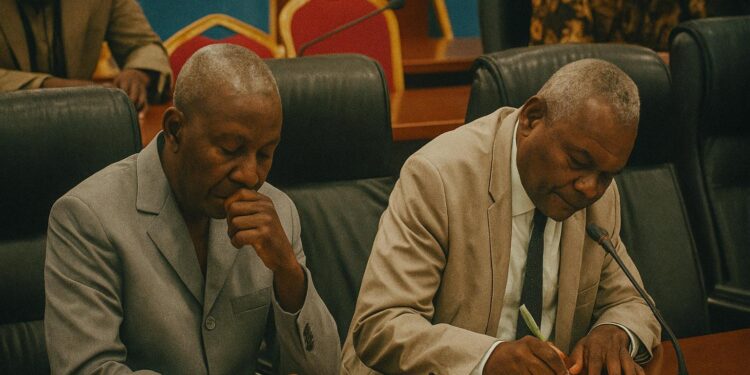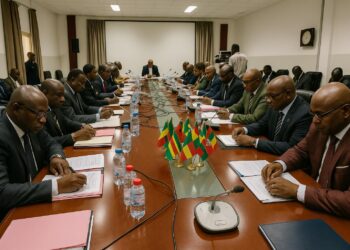A symbolic ballot echoing Congo’s quest for stability
In Brazzaville’s increasingly crowded calendar of civic events, the election of the executive bureau of the Association des Anciens Enfants de Troupe du Congo seldom commands front-page attention beyond the defence community. Yet this year’s unanimous renewal of Ayayos, a retired lieutenant-colonel whose résumé blends military instruction with community advocacy, generated measured applause in corridors of both government ministries and foreign chancelleries. According to local coverage (VOX.cg, 18 May 2024) and corroborating reports in Les Dépêches de Brazzaville, delegates from all ten departmental chapters validated the single-round vote, citing the candidate’s track record in mediating scholarship schemes and disaster-relief drills. For an association whose genesis dates back to the early 1980s and which has since transcended its barracks origins, continuity is no trivial matter; it signals institutional self-confidence at a time when many regional alumni bodies wrestle with fragmentation.
From parade grounds to policy forums: the evolving DNA of the AET
The AET’s metamorphosis mirrors the Republic of Congo’s own post-conflict re-engineering. Originally conceived to safeguard camaraderie among graduates of military preparatory schools, the body today manages vocational workshops in carpentry, coding and agribusiness, partly financed by the Ministry of Defence and private oil-sector foundations. Ayayos has been instrumental in negotiating memoranda of understanding with UNICEF for youth reintegration schemes and with the German Federal Agency for International Cooperation on technical training. Observers from the African Development Bank interviewed during the assembly highlighted the association’s rare capacity to blend hierarchical discipline with civil-society flexibility, an asset that diplomats assessing security-sector reform repeatedly acknowledge. The re-election therefore carries resonance beyond internal bylaws; it preserves a leadership style that treats social inclusion as a force multiplier for national resilience.
Electoral choreography and diplomatic undertones
Delegates convened under a procedural framework that, while less elaborate than national legislative ballots, followed transparent credentials verification supervised by an ad-hoc committee including two representatives from the Ministry of the Interior. International observers were absent by design; nonetheless, embassies of France, Russia and Brazil dispatched defence attachés who, from the gallery, noted the disciplined tenor of deliberations. Speaking to this review on condition of customary discretion, one Western envoy emphasised that “a fluid succession or confirmed mandate inside a veterans’ network stabilises the informal channels through which crisis information can travel.” Such comments illuminate how seemingly parochial elections intersect with broader diplomatic circuits: alumni frequently occupy mid-level posts in customs, border police and disaster-management agencies, serving as interlocutors during cross-border incidents along the Pool region.
Policy priorities: youth training, community resilience and regional cooperation
In his acceptance address, Ayayos pledged to consolidate partnerships with the Ministry of Technical and Vocational Education to scale up the AET’s apprenticeship centres, which currently enrol 1 200 trainees annually. He further announced a forthcoming pilot programme with the Economic Community of Central African States designed to standardise first-responder drills among alumni chapters in Gabon, Cameroon and the Democratic Republic of Congo. Analysts at the local think-tank CERAD argue that such schemes align with President Denis Sassou Nguesso’s vision of “defence for development,” whereby retired service members channel operational expertise into civilian preparedness. Funding remains a delicate variable, yet stakeholders appear confident: a senior executive at SNPC, the state oil company, confirmed exploratory talks regarding sponsorship of solar-powered workshops in the semiarid north.
A measured outlook balancing tradition and innovation
Taken in isolation, the re-election of a veterans’ association leader might seem a granular footnote in Congo’s political ledger. However, diplomacy thrives on granular signals. Ayayos’s renewed mandate conveys an implicit consensus across generational and regional lines within the defence fraternity, one that complements governmental efforts to professionalise security forces while expanding their social footprint. International partners will monitor whether promised programmes translate into measurable outcomes—lower youth unemployment, quicker disaster-response times, cross-border coordination—that can be quantified during next year’s African Union peer-review on governance. For now, the association’s choice of continuity over experimentation radiates a message of cautious optimism: in a domain where regimented traditions often clash with twenty-first-century exigencies, Congo’s former cadets have opted to march ahead under familiar colours, confident that steady hands can still pioneer novel routes.











































